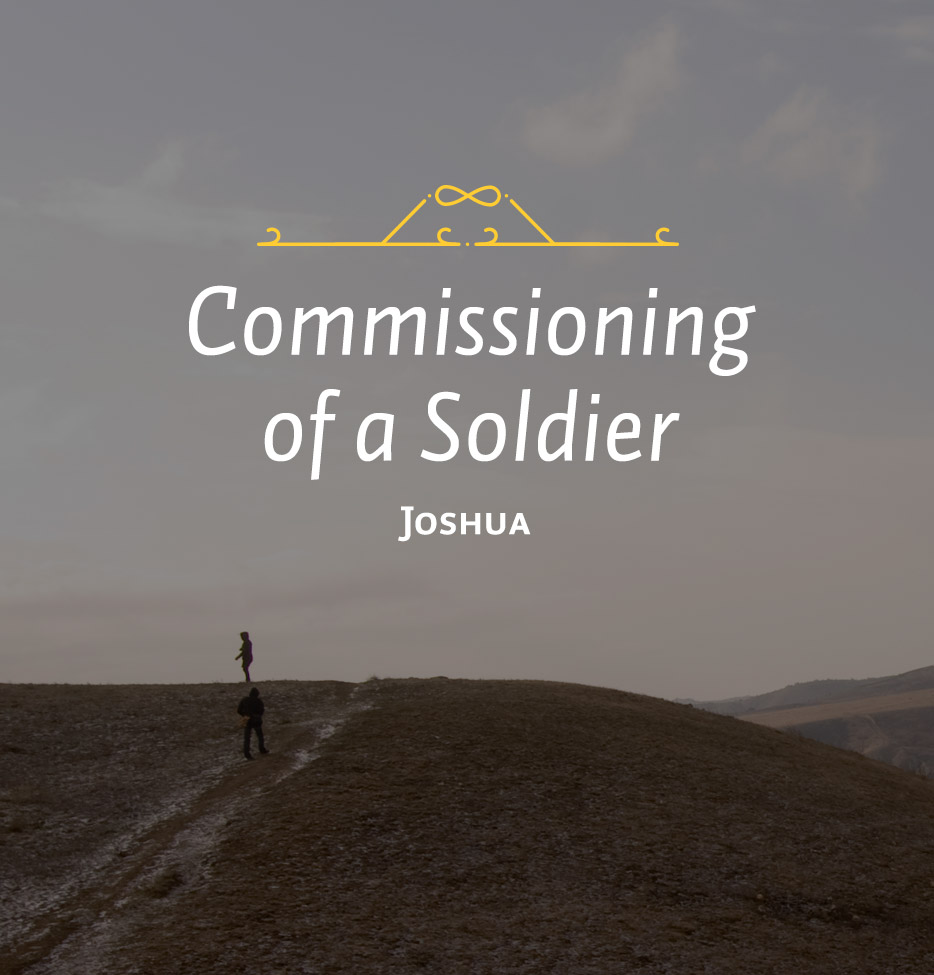Yesterday we looked at the first two elements of Joshua’s commission. Today we look at the last two, and also conclude our study of Joshua 1:1-9. The third thing Joshua was told to do was to meditate upon them, also in verse 8: “Meditate on it day and night so that you may be careful to do everything written in it.” Meditation is a step beyond mere knowing or even speaking. Meditation implies reflection and thought. It has to do with application. Meditation is the kind of thing that says, “Now, this is the truth. How does it apply to my life? How does it apply to my society?” We need to be reminded of the need for that in our day because we live in a superficial age of quick remedies, where even in Christian churches the teaching is often so superficial that people think that to be a good Christian, all you have to do is go there once in a while, pay passable attention to the sermon and then go out and live very much the way you would otherwise. No wonder we fail to make a significant impact in the secular world. We need Christians who will meditate on these things, think about them, make it a part of their lives, and try to frame their thinking in all other areas around what they know to be true on the basis of the Word of God. That’s meditation. I don’t hesitate to say that it’s one of the greatest needs in the evangelical church today.
And then finally, fourth, Joshua was told–and this is undoubtedly the most important thing–that not only was he to know the law of God, and to speak about the law of God, and to meditate on the law of God. He was also to obey the law of God. In fact, he was to obey it in its entirety. And that was the great secret of Joshua’s success. I think that’s our problem. It’s not that we don’t know the Bible. We know the Bible passably well. At least we know enough to keep us busy obeying for a long, long time. The difficulty is that we don’t obey. And here, as we study this book, right at the beginning, we find that it’s what Joshua was instructed to do.
As we go on through the book, we find out that that is indeed what he did do and that he was prospered as a result. People today are very interested in success, and here is the divine formula for true success. God says, “Do this,” and then, in verse 8, “you will be prosperous and successful. And I will be with you wherever you go.” Joshua really did do that. In the twenty-seventh chapter of Deuteronomy, there are instructions as to what was to be done. When the people finally entered the land and got to the point of their conquest, when they were located in the valley between Mt. Ebal, on the one hand, and Mt. Gerizim, on the other, they were to divide into two camps. They were to build an altar. They were to write the law of God on the altar. And then they were to read it aloud in the company of the people. And they were all to respond to the teaching that was read.
When Joshua got to Mt. Ebal and Mt. Gerizim, that is exactly what he did to the tiniest detail because he was determined, as God had said, not to depart from that law to the right hand or to the left. Moreover, when Joshua came to the very end of his life, just before he died when he was giving his final instruction to the people, what he had to say was almost verbatim what God had said to him way back in the beginning when he stood on the far side of the Jordan about to cross it and possess Canaan, “Be very strong. Be careful to obey all that is written in the book of the law, Moses, without turning aside to the right hand or to the left” (Josh. 23:6). And that’s why God blessed him. That’s why he’s such a hero of the faith. And that’s why we need to study this book in order that we might follow his example. May God give us grace to do that because we need men and women like that in our day.






